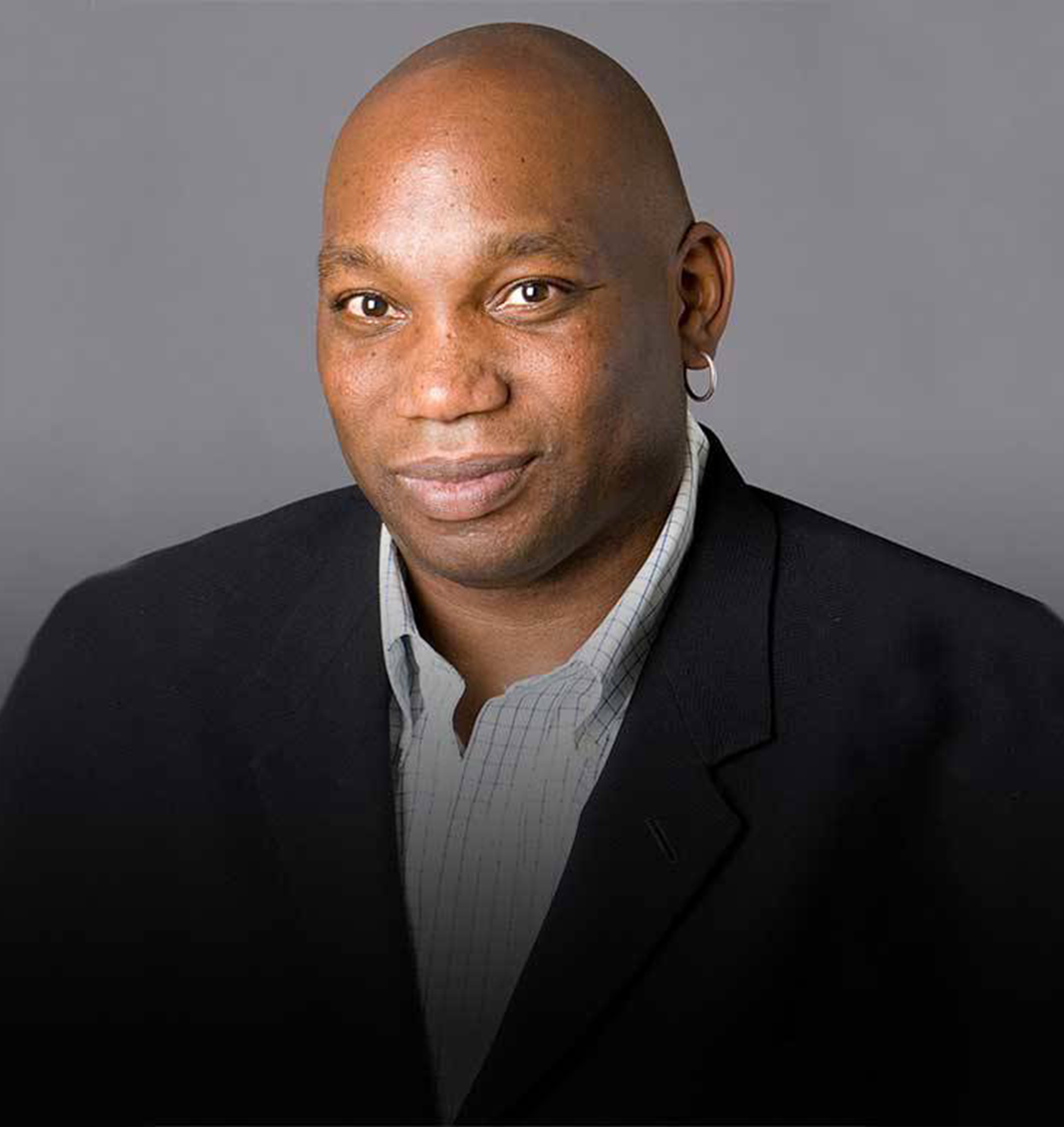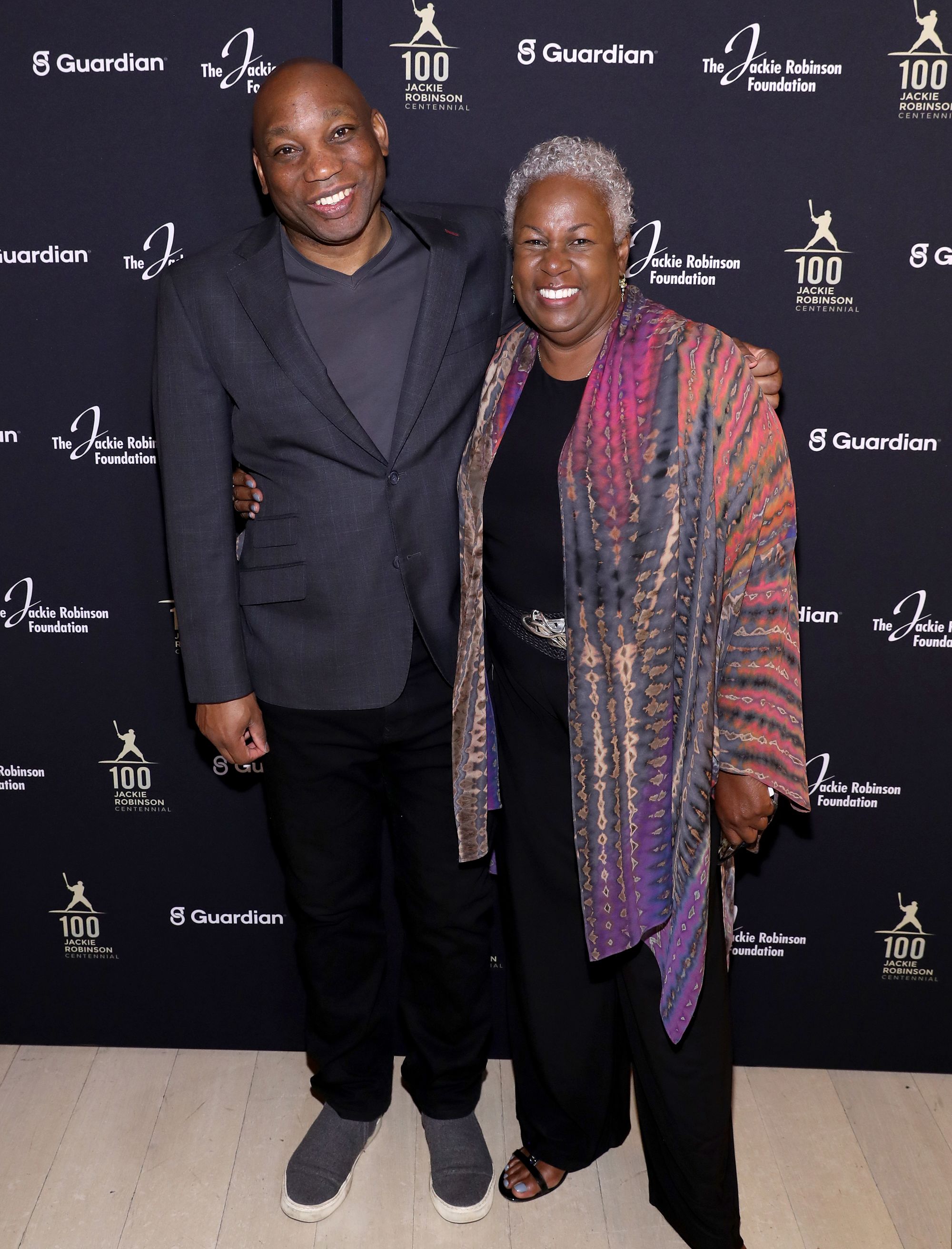Paying It Forward: Howard Bryant’s Legacy of Scholarship and Journalism
As a journalism student at the Klein College of Media and Communication, Howard Bryant, KLN ’91, never doubted his passion—or his purpose. Now, he’s paying tribute to the place it all started with a new scholarship for students who aim to follow in his footsteps.
As a journalist and sportswriter, Howard Bryant’s career has taken him across the country—from Oakland, California, to Bristol, Connecticut, with many stops in between. But for Bryant, there’s no place like home, and his definition isn’t what you might expect from this Massachusetts native and Boston sports superfan.
“Temple is home,” he said. “It’s a place that challenged me, and at times, it was challenging, but without a doubt, it’s the best decision I ever made.”
Looking back, it’s easy to see why. In the fall of 1987, Bryant arrived on campus ready to pursue his lifelong passion for journalism. A self-proclaimed “newspaper junkie,” he never questioned his professional aspirations. Today, Bryant, head of development, unscripted, at Meadowlark Media and a senior writer at ESPN, counts The Washington Post, the Boston Herald and the Oakland Tribune among his former employers. He’s the author of 10 books and has contributed essays to 16 others.
“It doesn’t happen that often that something you hope for becomes what you want it to be,” recalled Bryant. “And for me, this dream—being a journalist—it turned out exactly as I wanted because of what I gained at Temple.”
But the road to success wasn’t without obstacles, according to Bryant. In fact, his entire first semester, Bryant tried to muster the courage to walk into the Temple News offices. It took him nearly six months to take the leap, and shortly thereafter, in the spring of 1988, Bryant received his first assignment covering a job fair.
“That was my first byline, and I’ve been a journalist ever since,” he said proudly.
As an undergraduate student, Bryant fondly recalled the key moments that shaped his career, and his life: voting in his first presidential election in 1988; attending a journalism conference with his classmates in Washington, D.C., where they met with the Rev. Jesse Jackson; living through a volatile campus climate that included racial strife and the Temple Association of University Professionals strike of 1990. In the end, each of these experiences reinforced what he already knew.
Howard returned to Temple's campus in December 2022, speaking at Klein's Winter Commencement Ceremony, starting at the 9:20 mark.
“Temple’s campus was alive, there was so much happening, and as students, we were immersed immediately in the news,” he said. “We had the freedom to learn about journalism in real time, to see the real-life impact, and it just confirmed everything I always knew I wanted to do.”
For Bryant, who went on to work for some of the top names in news, there is no denying that his time at Temple stands out as one of the most influential experiences of his professional—and personal—life. And in 2024, he decided to pay it forward by creating the Howard Bryant Endowed Scholarship at the Klein College of Media and Communication.
“I remember running out of money, knowing there was a chance I wouldn’t return to campus because I was broke,” Bryant said. “I had always said if there was ever an opportunity to make it easier for someone else, that’s what I’d do. I’m grateful that I’m in a position to help someone else lessen that burden.”
Howard and Vice Chairperson, Sharon Robinson attend the Jackie Robinson Museum preview at The Times Center on June 03, 2019 in New York City. Photo: Getty.
Howard and Vice Chairperson, Sharon Robinson attend the Jackie Robinson Museum preview at The Times Center on June 03, 2019 in New York City. Photo: Getty.
“America loves to use the term self-made, but there’s nothing self-made about me—about any of us really,” he says. “Temple is responsible for all the good things I’ve been able to accomplish.”
According to Bryant, the scholarship is an opportunity to do more than honor his own experience; it’s a chance to invest in a new generation of journalists, students who might be able to continue their education because of his support. And at a critical time for journalism in America, Bryant feels privileged to do so.
“At Temple, we have an underdog mentality, but I want others to know that we still have a very real opportunity to have an effect on people, even after we’re gone,” he said. “That’s the definition of legacy.”
“People reach you and you reach others in ways you might never really understand or appreciate,” Bryant added. “It’s all about asking yourself, ‘what are you leaving behind?’”


